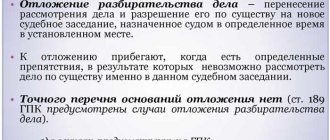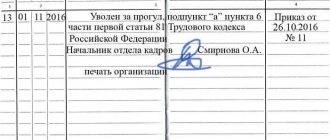Commentary on the article Judicial practice Comments 1. The period of administrative detention should not exceed three hours, except for the cases provided for in parts 2 and 3 of this article.
2. A person in respect of whom proceedings are underway for an administrative offense encroaching on the established regime of the State Border of the Russian Federation and the procedure for staying on the territory of the Russian Federation, about an administrative offense committed in internal sea waters, in the territorial sea, on the continental shelf, in exclusive economic zone of the Russian Federation, or a violation of customs rules, if necessary to establish an identity or to clarify the circumstances of an administrative offense, may be subject to administrative detention for a period of no more than 48 hours.
3. A person in respect of whom proceedings are being conducted for an administrative offense, entailing, as one of the measures of administrative punishment, administrative arrest or administrative deportation from the Russian Federation, may be subjected to administrative detention for a period of no more than 48 hours.
(as amended by Federal Law No. 78-FZ dated April 17, 2017)
4. The period of administrative detention of a person is calculated from the moment of his delivery in accordance with Article 27.2 of this Code. The period of administrative detention of a person in a state of intoxication is calculated from the moment he sobers up. In this case, the total period of time for sobering up of a person in a state of intoxication from the moment of his delivery in accordance with Article 27.2 of this Code and the administrative detention of such a person on the basis of part 2 or 3 of this article cannot exceed 48 hours.
(Part 4 as amended by Federal Law dated December 29, 2017 N 456-FZ)
Commentary to Art. 27.5 Code of Administrative Offenses of the Russian Federation
1. See paragraph 1 of the commentary to Art. 27.4.
Delivery of the offender is the initial procedural action carried out during administrative detention (see commentary to Article 27.2).
2. The period of administrative detention cannot exceed three hours; administrative detention for a period of up to 48 hours is possible only in relation to administrative offenses specified in part 2 of the commented article, as well as when committing administrative offenses entailing administrative arrest (see part 3 of the commented article). article; on administrative offenses entailing administrative arrest, see paragraph 1 of the commentary to Article 32.8). Persons carrying out administrative detention are indicated in Part 1 of Art. 27.3 of the Code of Administrative Offenses (see also paragraphs 6 - 9 of the commentary to this article).
Within the meaning of Parts 2 and 3 of the commented article, administrative detention is applied to a person suspected of committing an administrative offense. According to Part 1 of Art. 27.3 of the Code of Administrative Offences, administrative detention also applies to persons whose guilt in committing an administrative offense has been established by a resolution imposing an administrative penalty that has entered into legal force.
Article 27.5. Code of Administrative Offenses of the Russian Federation. Terms of administrative detention
1. When applying the commented article, it is necessary to take into account the provisions of Art. 22 of the Constitution of the Russian Federation, according to which, before a court decision, a person cannot be detained for more than 48 hours. The Resolution of the Constitutional Court of the Russian Federation of February 17, 1998 (SZ RF. 1998. N 9. Art. 1142) noted that, within the meaning of the mentioned article of the Constitution of the Russian Federation, the procedure established by it for applying appropriate coercive measures also applies to administrative detention.
Part 1 of the commented article indicates the general maximum period for administrative detention of a person who has committed an administrative offense - 3 hours. The period of administrative detention of a person must include the time of actual stay as a detainee from the moment of delivery for drawing up a protocol until the moment of release, but not more than 3 hours.
2. Persons who have committed petty hooliganism and a number of other offenses entailing administrative arrest as one of the administrative penalties may be detained by the head of the internal affairs body (his deputy), the head of the duty unit (duty shift of the duty unit), authorized officials of other state bodies carrying out administrative detention in accordance with Art. 27.3 of the Code, for the period necessary for the consideration of the case by a judge, but not more than 48 hours. In the absence of those specified in Art. 27.3 of the Code, the bodies of specially designated premises or special institutions for the detention of detained persons, created in the prescribed manner by the executive authorities of the constituent entities of the Russian Federation, the detention of administrative detainees on the grounds specified in Parts 2 and 3 of Art. 27.5 of the Code is not permitted.
3. In a state of emergency, citizens who violated the curfew rules are detained by law enforcement until the end of the curfew, and persons who do not have identification documents with them - until their identity is established, but for no more than three days by decision of the chief internal affairs body or his deputy.
In accordance with the Resolution of the Constitutional Court of the Russian Federation of March 14, 2002, the period of administrative detention from July 1, 2002 without a court decision cannot exceed 48 hours. By a court decision, in certain conditions, this period can be extended by no more than 10 days (Article 31 of the Federal Constitutional Law of May 30, 2001 No. 3-FKZ “On a State of Emergency”).
4. In conditions of martial law in accordance with Art. 7 of the Federal Constitutional Law of January 30, 2002 No. 1-FKZ “On Martial Law” federal executive authorities, executive authorities of constituent entities of the Russian Federation and military control authorities are given the right, if necessary, to detain citizens for up to 30 days.
5. In accordance with the Federal Law of June 24, 1999 N 120-FZ “On the fundamentals of the system for the prevention of neglect and juvenile delinquency” (as amended and supplemented), a system of specialized institutions for minors in need of social rehabilitation, social management bodies protection of the population. Article 21 of the mentioned Federal Law determines that the internal affairs bodies have divisions for juvenile affairs and temporary detention centers for juvenile offenders. To the specified centers in accordance with Art. 22 of this Law, minors who have committed offenses entailing administrative liability may be placed by order of a judge in cases where their identity has not been established or they do not have a place of residence, place of stay or do not live in the territory of the subject of the Russian Federation where they committed the administrative offense. In this case, the prosecutor is notified within 24 hours, and within 2 days from the date of placement of such a person in an isolation ward, the materials are sent to the judge to decide on the further detention or release of the minor. Minors may remain in a temporary detention center for the minimum amount of time necessary for their placement, but not more than 30 days. In exceptional cases, this time may be extended based on a judge's ruling for up to 15 days.
6. Foreign citizens and stateless persons who have illegally crossed the State Border of the Russian Federation, in respect of whom decisions have been made to transfer them to the authorities of neighboring states or deportation from the Russian Federation, or decisions have been made to impose administrative punishment in the form of administrative deportation from the Russian Federation, by court decision are detained by internal affairs or security authorities for the time necessary to execute the decision or resolution (see Art. 31 and 34 of the Federal Law of July 25, 2002 N 115-FZ “On the legal status of foreign citizens in the Russian Federation” as amended. and additional).
Judicial practice under Article 27.5 of the Code of Administrative Offenses of the Russian Federation:
Supreme Court decision: Resolution No. 5-AD11-10 of May 12, 2011 Judicial Collegium for Administrative Cases, supervision
Supreme Court decision: Resolution No. 18-AD17-14 of 06/01/2017 Judicial Collegium for Administrative Cases, supervision
Supreme Court decision: Resolution No. 9-AD15-13 of September 22, 2015 Judicial Collegium for Administrative Cases, supervision
Decision of the Supreme Court: Decision No. DK14-24 of November 14, 2014 Disciplinary Board, first instance
Decision of the Supreme Court: Determination No. APL14-6D dated 02/03/2015 Board of Appeal, appeal
Supreme Court decision: Resolution No. 18-AD16-159 of November 1, 2016 Judicial Collegium for Administrative Cases, supervision
Supreme Court decision: Resolution No. 18-AD15-21 of 07/03/2015 Judicial Collegium for Administrative Cases, supervision
Decision of the Supreme Court: Determination N 18-D13-42 of April 24, 2013 Judicial Collegium for Criminal Cases, supervision
Supreme Court decision: Resolution No. 5-AD11-7 of May 12, 2011 Judicial Collegium for Administrative Cases, supervision
Decision of the Supreme Court: Resolution No. 81-AD17-13 of May 29, 2017 Judicial Collegium for Administrative Cases, supervision
- First
- «
- Last
Comments ()
Write a comment
Commentary on Article 27.5 of the Code of Administrative Offenses of the Russian Federation
Comments on the articles of the Code of Administrative Offenses will help you understand the nuances of administrative law.
1. As a general rule, the period of administrative detention should not exceed 3 hours. It is calculated from the moment the person is brought to the office premises to draw up a protocol on the administrative offense.
When dealing with those delivered who are in a state of intoxication, if their actions contain signs of an administrative offense, the operational duty officer of the internal affairs body or another authorized person is obliged to place the offender in a room for administrative detainees and, after his sobering up, conduct the proceedings in the prescribed manner.
2. The period of administrative detention can be less than 3 hours if the goals of administrative detention have been achieved (a protocol on an administrative offense has been drawn up, the identity of the detainee has been established, an administrative penalty has been imposed), or circumstances have been identified that preclude proceedings in the case of an administrative offense (Article 24.5 of the Code of Administrative Offenses of the Russian Federation) .
3. In exceptional cases, the period of administrative detention may be more than three hours. At the same time, the norms of the Code of Administrative Offenses of the Russian Federation fully comply with Art. 22 of the Constitution of the Russian Federation, according to which, before a court decision, a person cannot be detained for more than 48 hours. Administrative detention for a period of no more than 48 hours is allowed only in two cases:
— when committing a violation of customs rules, the regime of the State Border of the Russian Federation and some other offenses;
- when committing an offense that entails administrative arrest as one of the administrative penalties.
The purposes of such detention may be to establish identity or clarify the circumstances of the case, and in cases where the sanction of the article for committing an offense provides for punishment in the form of administrative arrest - to ensure the inevitability of the appointment and execution of punishment.
4. The decision to extend the period of administrative detention is made by an official within the limits of his powers independently, without a written message to the prosecutor or obtaining his sanction.
The following commentary to Article 27.5 of the Code of Administrative Offenses of the Russian Federation
If you have questions regarding Art. 27.5 of the Administrative Code, you can get legal advice.
1. The commented article defines the general (3 hours) and special (48 hours) periods of administrative detention. The maximum period of detention is based on Art. 22 of the Constitution of the Russian Federation, according to which, before a court decision, a person cannot be detained for more than 48 hours. In the Resolution of the Constitutional Court of the Russian Federation dated February 17, 1998 “In the case of verifying the constitutionality of the provisions of part two of Article 31 of the USSR Law of June 24, 1981 “On the legal status of foreign citizens in the USSR” in connection with the complaint of Yahya Dashti Gafur” it is noted that according to within the meaning of the mentioned article of the Constitution of the Russian Federation, the procedure established by it for applying appropriate coercive measures also applies to administrative detention. Administrative detention for more than 48 hours is permitted only on the basis of a court decision.
2. The period of administrative detention of a person is calculated from the moment of delivery, and of a person in a state of intoxication, from the time of his sobering up. Considering that the concept of “sobering up” is not a legal, but a medical category, and, moreover, based on the discretion of the officials carrying out the detention, this formulation of the law creates the ground for abuse in determining the moment of sobering up. It seems necessary to establish in legislation the maximum sobering period, as well as to secure the right of a detained person to have his condition checked with the mandatory participation of a narcologist.
Commentary on Article 27.5 of the Code of Administrative Offenses of the Russian Federation
1. The commented article defines the general (3 hours) and special (48 hours) periods of administrative detention. The maximum period of detention is based on Art. 22 of the Constitution of the Russian Federation, according to which, before a court decision, a person cannot be detained for more than 48 hours. In the Resolution of the Constitutional Court of the Russian Federation dated February 17, 1998 “In the case of verifying the constitutionality of the provisions of part two of Article 31 of the USSR Law of June 24, 1981 “On the legal status of foreign citizens in the USSR” in connection with the complaint of Yahya Dashti Gafur” it is noted that according to within the meaning of the mentioned article of the Constitution of the Russian Federation, the procedure established by it for applying appropriate coercive measures also applies to administrative detention. Administrative detention for more than 48 hours is permitted only on the basis of a court decision.
2. The period of administrative detention of a person is calculated from the moment of delivery, and of a person in a state of intoxication, from the time of his sobering up. Considering that the concept of “sobering up” is not a legal, but a medical category, and, moreover, based on the discretion of the officials carrying out the detention, this formulation of the law creates the ground for abuse in determining the moment of sobering up. It seems necessary to establish in legislation the maximum sobering period, as well as to secure the right of a detained person to have his condition checked with the mandatory participation of a narcologist.






